EVENTS
MFN Redux
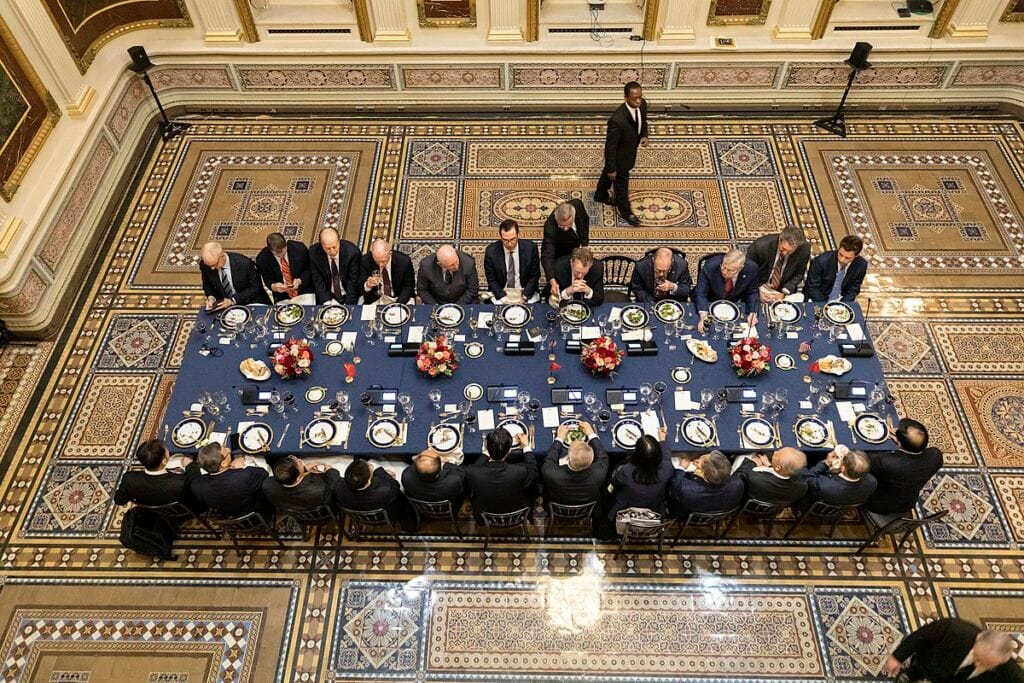
Speaking of Washington DC, former Secretary of State George Shultz observed, “Nothing is ever settled in this town.” As if to give form to this observation, several members of Congress have introduced legislation revoking China’s Permanent Normal Trade Relations (PNTR), previously called Most Favored Nation (MFN). Congress granted China PNTR status in 2000, guaranteeing that Chinese goods enter the United States, China’s largest export market, at low tariff rates.
Prior to China being granted PNTR, China’s tariff status had to be renewed every year, a process that touched off months of acrimonious debate. In 1990, one year after the killings in Tiananmen Square, Congresswoman Nancy Pelosi (D-California) and Senator George Mitchell (D-Maine) introduced conditions that would apply to annual renewal — conditions like freeing all political prisoners and halting the export of products made with prison labor — that most observers recognized would not be fulfilled. At the same time as the Mitchell-Pelosi legislation was put forward, Congressman Gerald Solomon (R-New York) introduced a resolution of disapproval to immediately terminate China’s MFN.
Both chambers of Congress passed the bills, but President George H. W. Bush vetoed them; his veto was narrowly sustained in the Senate. Every year thereafter, this kabuki show was repeated: the president would issue a waiver to the free emigration conditions of the Jackson–Vanik amendment, Congress would vote it down, the president would veto, and finally Congress would fail to override the veto.
Since both China and the United States are members of the World Trade Organization (WTO), the United States is obligated to grant China the most favorable tariffs that it grants to other WTO members. An exception can be made for national security reasons. (A national security exception was used to revoke Russia’s and Belarus’s NTR/MFN in 2022.) Many in Washington, in both the executive branch and Congress, consider China to be the most serious national security threat facing the United States In addition to members of Congress, former president Donald Trump has voiced support for revoking China’s tariff status as has Florida governor Ron DeSantis.
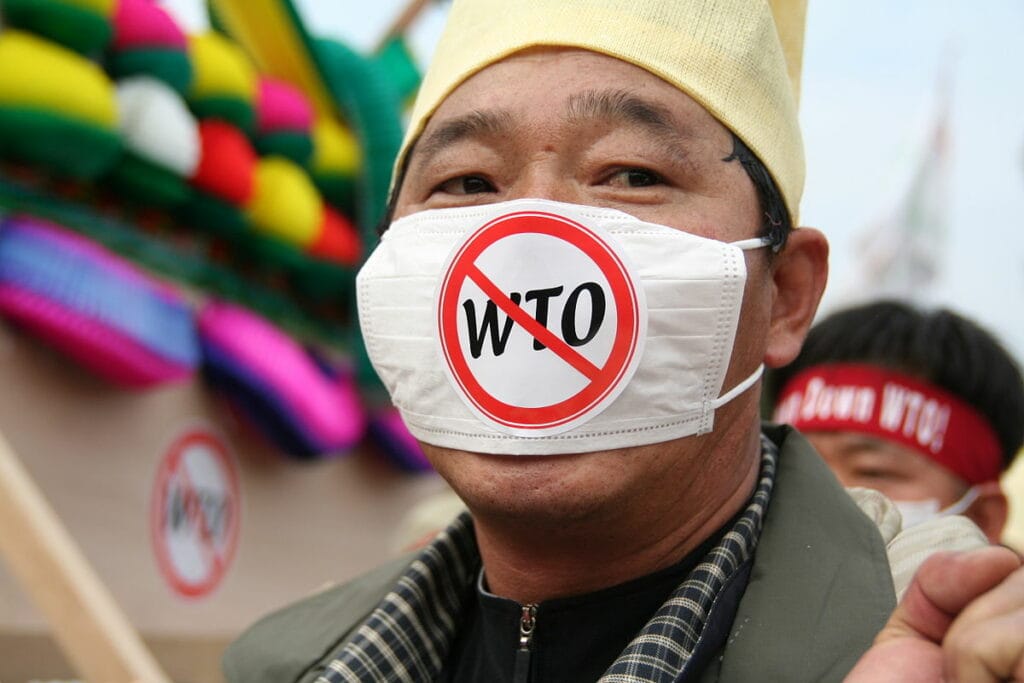
In the words of one commentator, revoking China’s preferential tariff treatment would represent a “gut punch” to US-China relations. It would also massively increase the cost of Chinese goods, lead to higher unemployment, and fuel already-high inflation. Since no other country is likely to strip China of its trade privileges, such a move by Congress would redound to the benefit of America’s competitors in Europe and Asia.
Legislation
In January 2023, Senator Tom Cotton (R-Arkansas), together with three other Republican senators, introduced legislation to revoke China’s PNTR. The same month, Congressman Chris Smith (R-New Jersey) and Congressman Tom Tiffany (R-Wisconsin) introduced the China Trade Relations Act of 2023 in the House of Representatives. While the Senate bill and the House bill both have the same purpose — to revoke China’s trade status, mostly for human rights reasons — there are important differences: the House bill allows a two-year grace period before revocation takes place, and it prohibits the president from entering into new commercial agreements with China. Assuming the bills pass both chambers in their current forms, a conference to merge the two versions would have to take place.
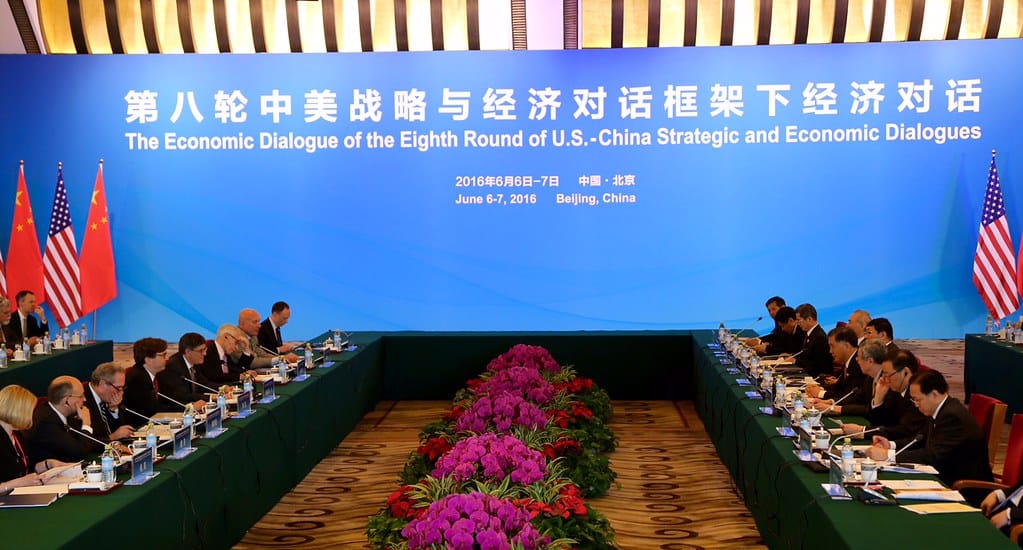
Absent a presidential waiver, Senator Cotton’s bill lists China’s human rights and trade abuses that must be rectified for the country to qualify for PNTR. In addition to denying free emigration under the Jackson–Vanik amendment, the abuses include:
- Using slave labor;
- Operating “vocational and training camps” and other concentration camps that hold people against their will;
- Performing forced abortions or sterilizations;
- Harvesting prisoner organs without consent;
- Hindering the free exercise of religion;
- Intimidating or harassing Chinese citizens who live outside of China; and
- Engaging in economic espionage and theft of intellectual property.
If the bills go forward, there will likely be hearings in the committees with jurisdictions in the House and Senate. Witnesses would be called to testify.
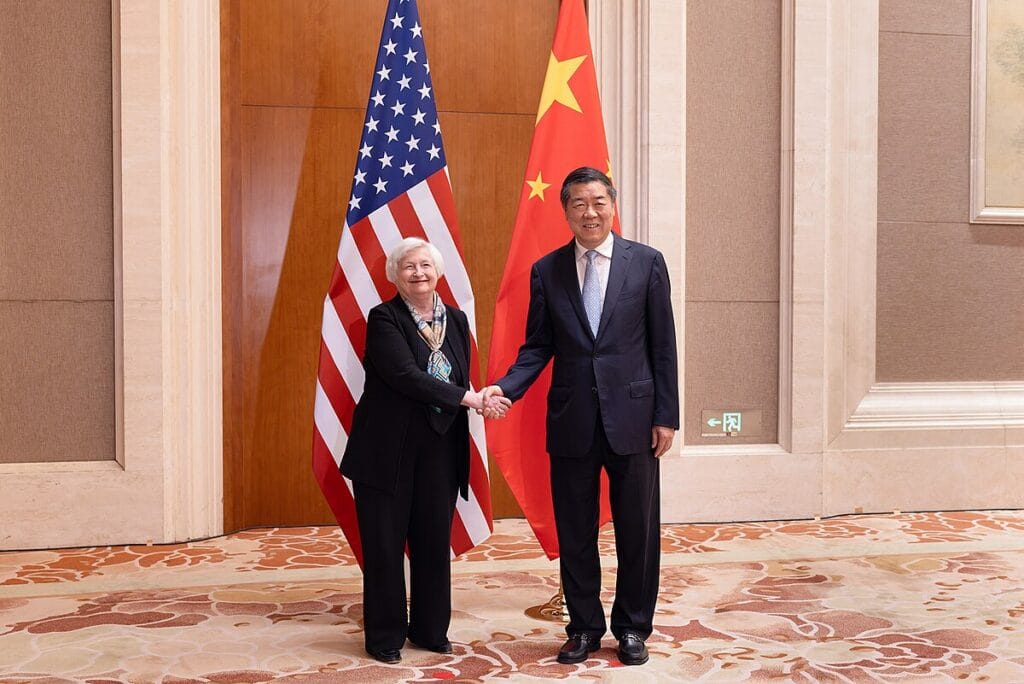
Hearings and Testimonies
In 1990, while he was president of the American Chamber of Congress in Hong Kong, John Kamm testified three times before the House Foreign Affairs and Ways and Means Committees and the Senate Foreign Affairs Committee in favor of retaining China’s MFN (see “John Kamm Remembers: My First Testimony to Congress“). As a private businessman, he testified to committees in both 1991 and 1992. Altogether, Kamm testified to Congress on MFN six times between 1990 and 1992.
Kamm first testified in May 1990. Prior to his testimony the Committee heard from Ambassador Winston Lord, Chinese student leader Zhao Haiqing, and Washington DC head of Human Rights Watch Holly Burkhalter who spoke in favor of sanctioning the Chinese government. David Lampton of the National Committee on US-China Relations and Roger Sullivan of the National Council for US-China Trade argued against sanctions.
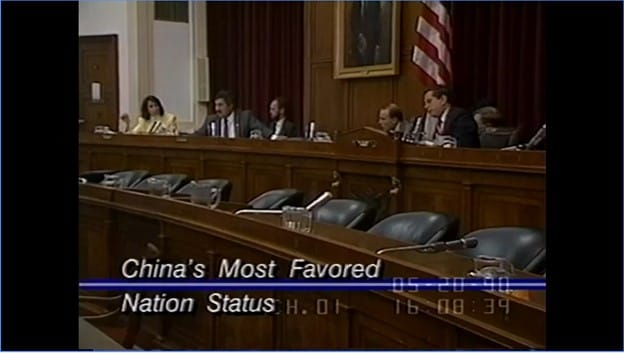
Kamm’s testimony followed. The crux of Kamm’s argument was that revoking China’s MFN would damage Hong Kong — a pro-American bastion of freedom — and the reform forces in mainland China, principally those based in Guangdong Province.
In early June 1990, President George H. W. Bush renewed China’s MFN for another year. In his extension statement, he mentioned testimony that Hong Kong would suffer if China’s trade status were revoked. It marked the first time in American history that Hong Kong had factored into an important foreign policy decision by the US government.
Given recent developments in human rights and the rule of law in both Hong Kong and China, as well as the strong antipathy toward China and Hong Kong in Washington, advancing that argument today would be impossible. Hong Kong is no longer a bastion of freedom, and pro-reform forces on the mainland are virtually extinct. Tough times lie ahead for those hoping to avoid the revocation of China’s trade privileges.
DUI HUA: 25 YEARS OF DIALOGUE
Dui Hua began operations in August 1999 upon receiving its first grant to work on prisoner accounting. As Dui Hua enters its 25th year, we are launching a new podcast series looking at aspects of Dui Hua’s unique form of advocacy as well as issues affecting US-China relations.
Lists & Dialogues: The Prisoner Information Project
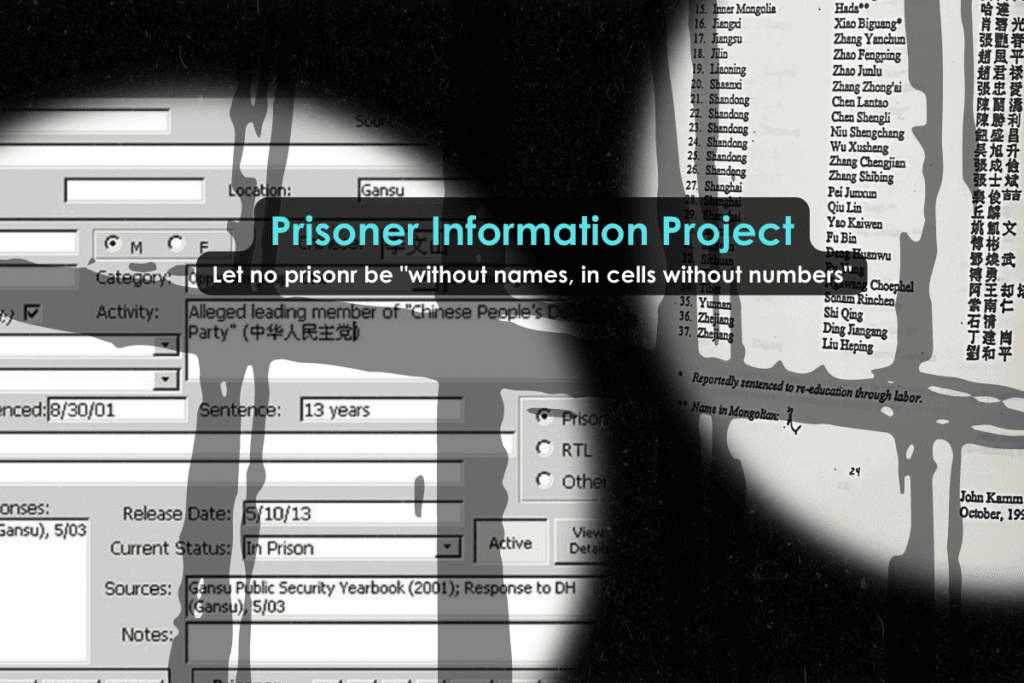
Before there was The Dui Hua Foundation and before the Political Prisoner Database (PPDB), there was the Prisoner Information Project (PIP).
The PIP was launched by John Kamm in 1990 after he testified to Congress in support of Most Favored Nation (MFN) for China. It was Kamm’s one-man effort to gain early release for prisoners wrapped up in China’s political upheaval.
By the time Kamm appeared before Congress in April 1998 to brief members on the status of the PIP, he had sought information on more than 350 individuals. Kamm was regularly filing inquiries with organs of the Chinese government on the situations of Chinese citizens held in prisons, reform-through-labor camps, reeducation-through-labor camps, detention centers, and other penal facilities. Kamm ended his 1998 testimony to Congress with recommendations that resonate today, reflecting missed opportunities on the part of politicians and the business community to hold China’s human rights record to account.
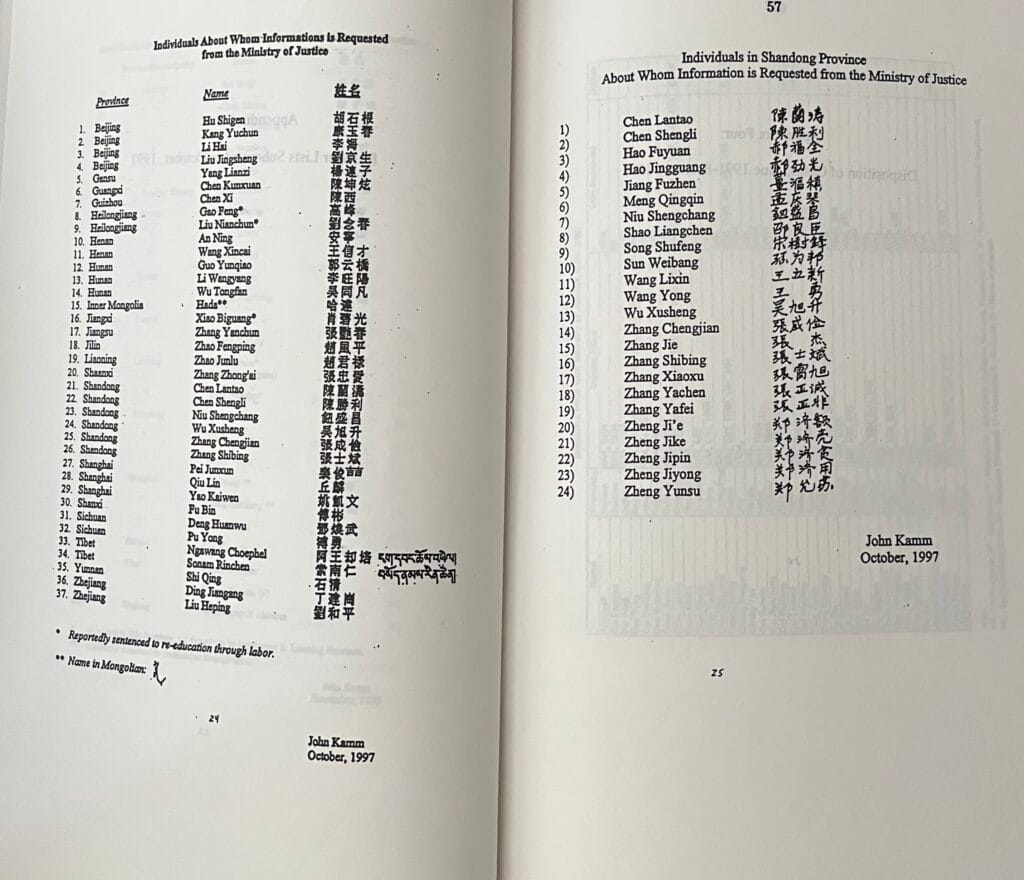
After that testimony, a chance meeting on a plane led to Kamm being invited to submit a proposal for a grant from a private foundation, leading to the establishment of The Dui Hua Foundation in 1999. Kamm was inspired by David Remnick’s Lenin’s Tomb to organize details Dui Hua researchers found on the prisoners into index cards, the predecessor of the PPDB.
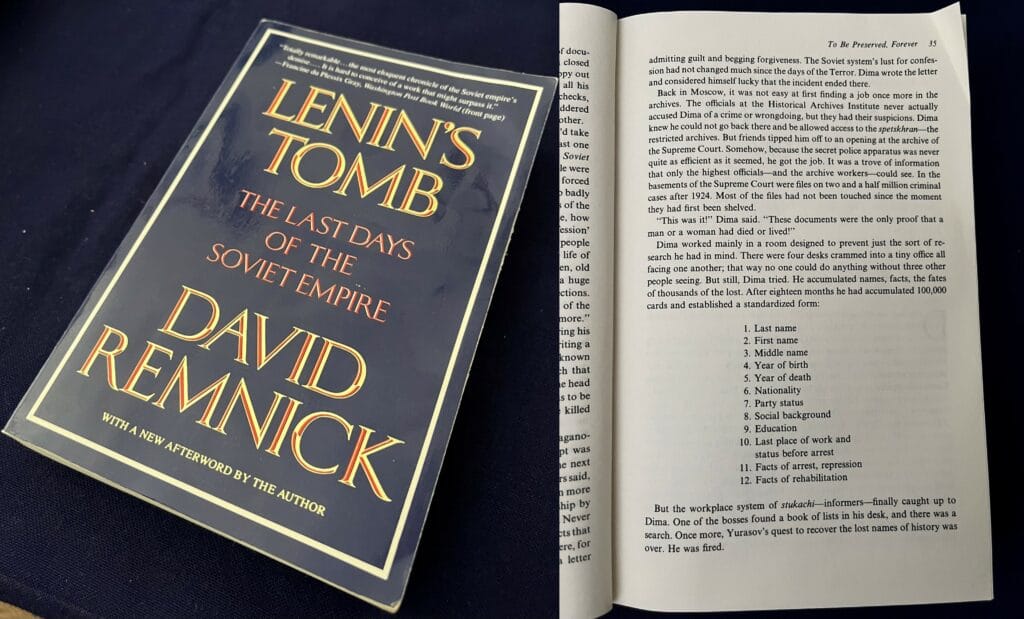
Following the completion of that first grant, Kamm reported that the most obvious conclusion of his project was that the human rights community — “individuals and organizations, governmental and non-governmental alike — failed to undertake the basic research necessary to uncover and document cases of political crime in China.” Kamm’s purpose in establishing The Dui Hua Foundation was to continue his prisoner accounting work started with the PIP.
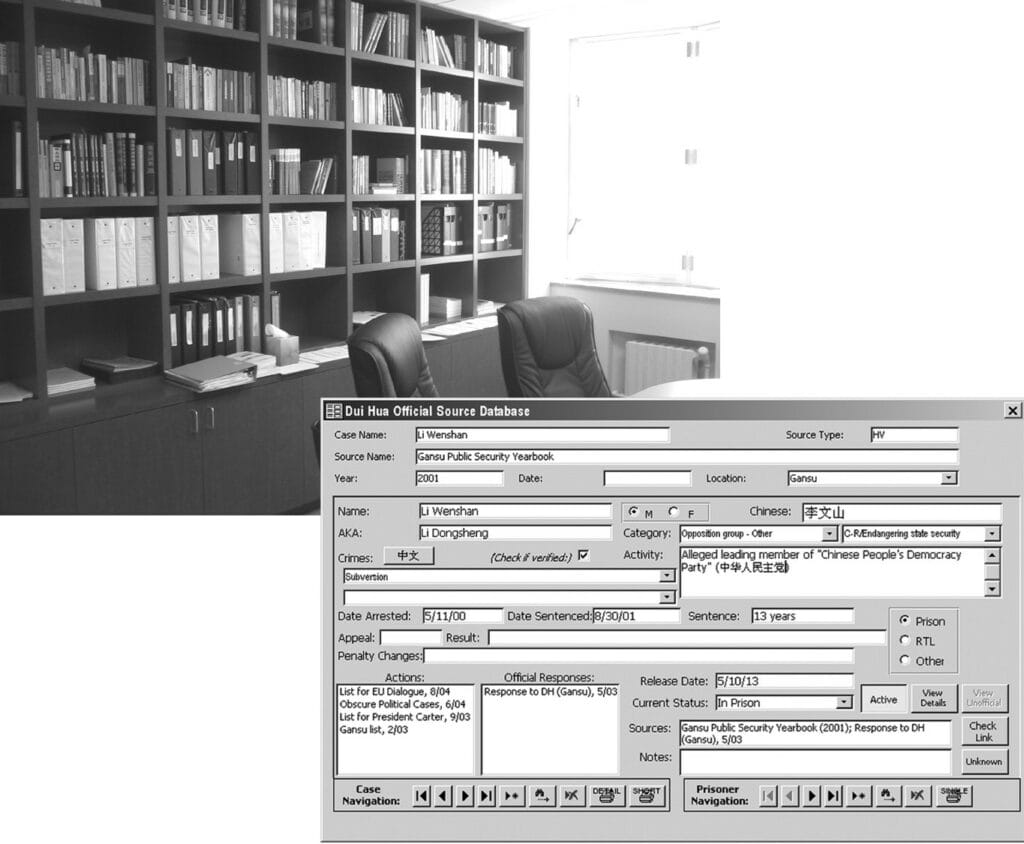
The PIP has changed over the years, living on as the PPDB. But the original concept and purpose of the work remains the same: researching and submitting lists of political and religious prisoners, especially those “without names, in cells without numbers” (to borrow Jacobo Timerman’s phrase) and seeking improved treatment and clemency. Earlier this year, Kamm wrote about the importance of prisoner lists in an essay for the US-Asia Law Institute:
“Experience tells us that dialogues cannot immediately solve China’s human rights problems, but they can increase transparency. Prisoner lists in particular have benefited prisoners and their families, and should be part of any resumed dialogues. Dui Hua, which remains committed to a mutually respectful dialogue with the Chinese government, plans to continue submitting lists for as long as it is able to do so.”
PUBLICATIONS ROUND UP
Featured: John Kamm Remembers, August 7, 2023: “My First Testimony to Congress“
John Kamm Remembers is a publication exploring Kamm’s human rights advocacy. New installments are published on this page.
My First Testimony to Congress
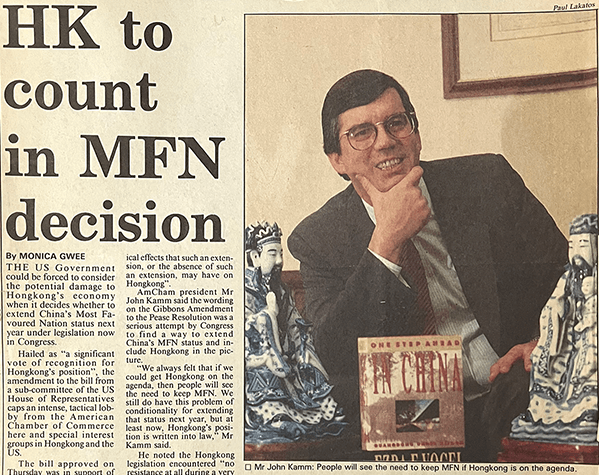
In this installment in the long-running series John Kamm Remembers, Kamm recounts his first testimony to the House of Representatives in May 1990. He spoke in favor of retaining China’s Most Favored Nation trading, arguing that revoking MFN would harm Hong Kong and the reform movement in China. It marked the first time in American history that Hong Kong had factored into an important foreign policy decision by the American government.
Featured: Human Rights Journal, June 22, 2023: Promoter to Pariah: Xinling Famen’s “Unorthodox Buddhism”

In March 2022, Dui Hua released a study titled “The Persecution of Unorthodox Religious Groups in China” identifying 41 religious groups whose members are at risk of arrest and imprisonment. Dui Hua has since uncovered another unorthodox religious group called Xinling Famen (心灵法门) that is facing similar repression. Xinling Famen, also known as the Guanyin Citta Dharma Door, is among the newly emerged Buddhist groups which have gained traction in China and overseas.
Featured: Human Rights Journal, July 24, 2023: Public Sentencing Rallies during the Pandemic
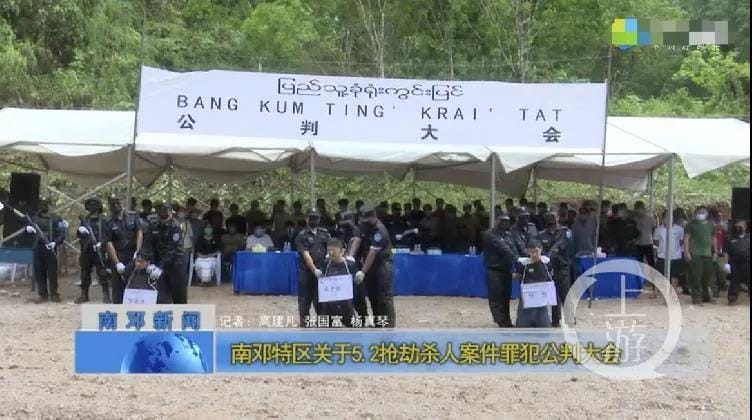
In May 2020, a video clip featuring the execution of three men in a public sentencing rally in Wa State of Myanmar became a trending topic on domestic social media. Chinese news media sources expressed shock that the shaming ritual was replicated in Myanmar even though it has “long vanished in China.” While there are signs that these rallies have fallen into disuse in recent years, they continue to take place in some localities in China.
See Also:
Prisoner Updates 2023 #6, Part I: Notable ESS convictions; Veteran activist sentenced in Guangzhou after two years in custody; Taiwan resident formally arrested in Wenzhou for inciting splittism; Taiwanese publisher Li Yanhe disappeared (June 7, 2023)
Prisoner Updates 2023 #6, Part II: Lawyer Yu & wife formerly arrested; Secrecy around alleged cases of state secrets & spying; Eighth national state security education day (June 7, 2023)
